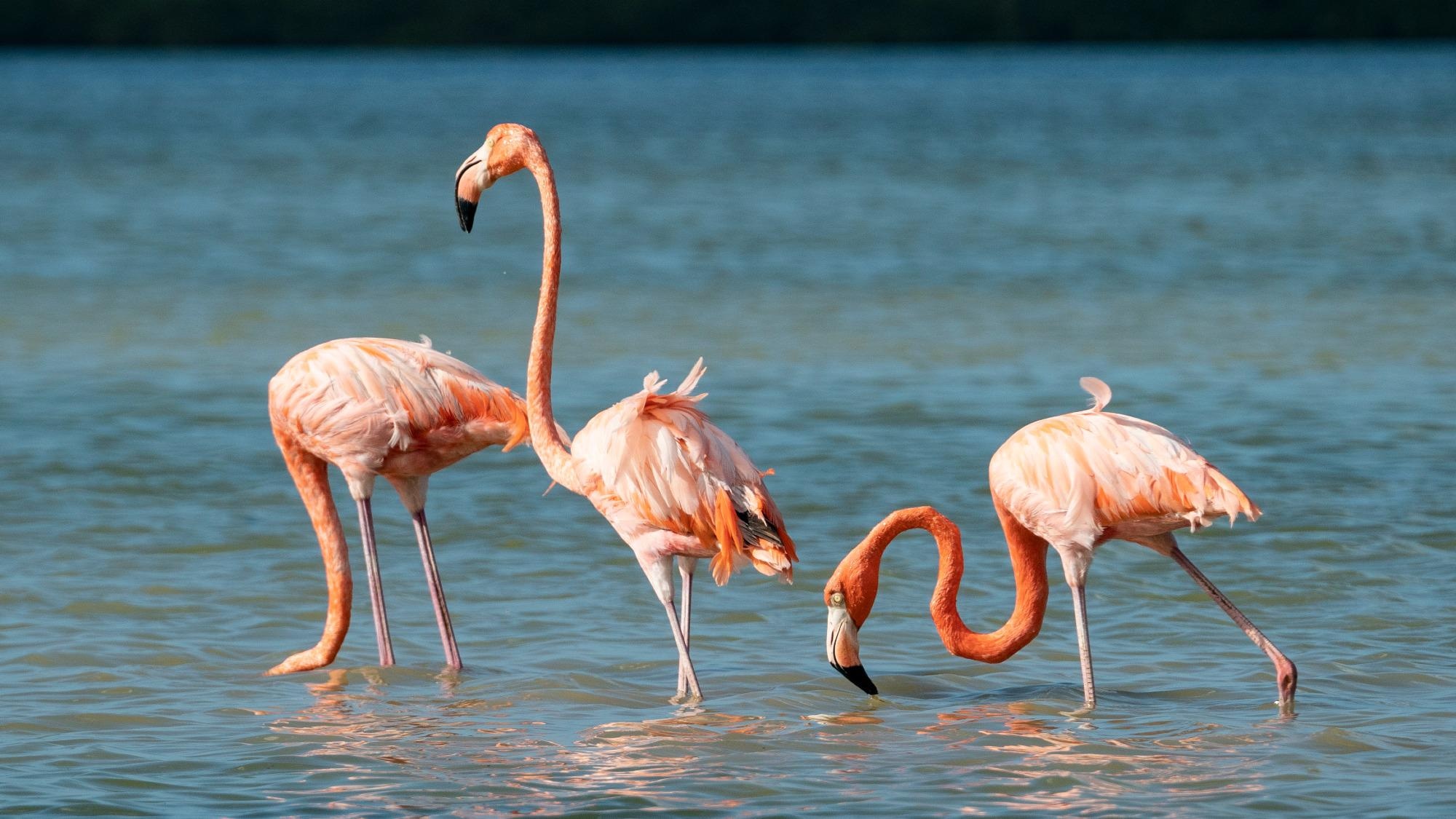Lithium is powering the world’s electric vehicles, making it a critical component in the fight against carbon pollution. According to a new study published in the Proceedings of the Royal Society B, the conjunction of lithium mining and climate change in the Andes Mountains may be seriously impacting flamingo populations.

Image Credit: Shutterstock.com/ Tony Liang
The research looked at the impacts of lithium mining and climate change on shallow, saltwater lakes in the Chilean Andes, where flamingos congregate for eating and mating. The findings demonstrate that two species of flamingos that exclusively breed in these mountains had lost 10 to 12% of their population in just 11 years, but only at the lake polluted through mining.
Given how rapidly our demand for lithium is growing, there is a great need to understand what negative effects its production might be having on biodiversity and especially those species, like flamingos, that are important to local economies.
Dr. Nathan Senner, Study Co-Author and Population Biologist, University of South Carolina
The “Lithium Triangle” of Chile, Bolivia and Argentina produces the majority of the world’s lithium. Meanwhile, the region is home to three flamingo lifeforms: Andean, James’ and Chilean, two of which breed nowhere else on the planet and are the backbone of the region’s tourist sector.
The research, which comprised scientists from Spain, Montana and Chile, concentrated on five lakes in the Chilean Andes, which are part of the Lithium Triangle, such as the Salar de Atacama, where most of Chile’s lithium mining takes place.
Climate change is causing the lakes in the area to shrink, according to the scientists. When the water level in a lake drops, food levels drop and the population of breeding flamingos drops as well. However, the scientists discovered that flamingo populations have not yet begun to fall significantly. Instead, flamingo numbers have decreased only in the Salar de Atacama.
For the time being, mining has had a minor influence on the region, and the total flamingo population has remained stable, owing to the birds’ ability to migrate to new lakes in search of better conditions, according to Senner. However, if lithium mining develops to fulfill international demand for the metal, this may not be the case in the future.
The problem is that, in the Salar de Atacama, in addition to the changes caused by climate change across the region, lithium mining is reducing water levels and increasing disturbances for flamingos. This means years with sufficient water for flamingos to breed occur less frequently and fewer flamingos are now present, even when there is enough water.
Dr. Jorge Gutiérrez, Study Lead and Ecologist, Universidad de Extremadura
The authors established their findings on 30 years of flamingo counts conducted by citizen scientists and Chilean government biologists all over five saline lakes. Researchers also used data from remote sensing to track variation in water levels and availability of food in each lake over time.
This allowed researchers to look into how meteorological conditions affected the supply of water and flamingo food, as well as how water and food impacted flamingo abundance. Lithium’s global demand has increased in the past few decades due to its application in electric vehicles, mobile phones, and electronic storage devices.
As a result, production in Chile is expected to increase by 2026 compared to 2018 levels, and to grow beyond the Salar de Atacama to adjacent saline lakes.
The flamingo declines we documented in the Salar de Atacama may soon spread to the rest of the region.
Dr. Cristina Dorador, Study Co-Author and Professor, Universidad de Antofagasta
“Given that two of these flamingo species breed nowhere else in the world, this could lead to dramatic declines across their entire range and severely hurt the local ecotourism industry that relies on flamingos,” Dr. Dorador added.
Journal Reference:
Gutiérrez, J. S., et al. (2022) Climate change and lithium mining influence flamingo abundance in the Lithium Triangle. Proceedings of the Royal Society B. doi.org/10.1098/rspb.2021.2388.